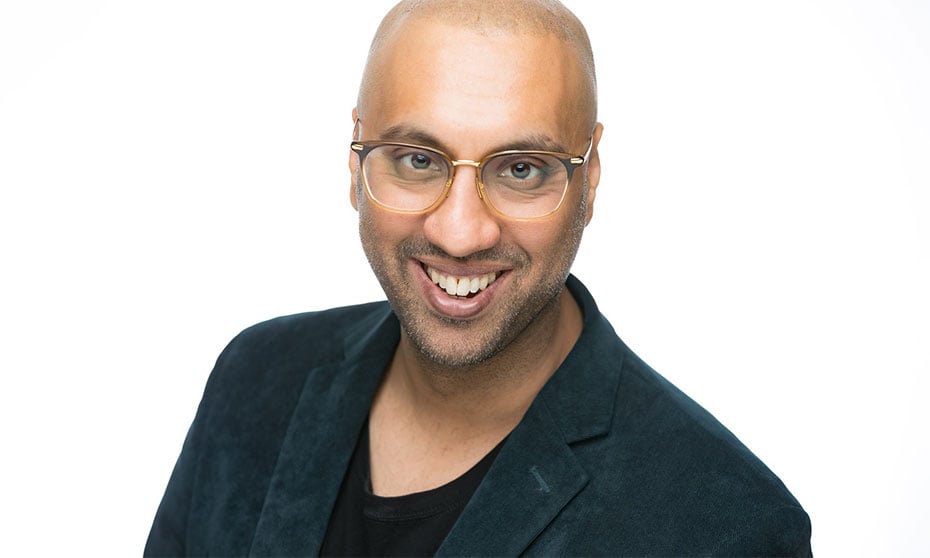
Will add efficiency for clinic, court system and help alleviate poverty: executive director

After two years of being “significantly limited” in their ability to offer end-of-life planning help, the Durham Community Legal Clinic has partnered with Epilogue – a digital estate planning service – and can now create wills and powers of attorney for the clinic’s clients, says Executive Director of the DCLC Omar Ha-Redeye
Ha-Redeye says access to digital estate-planning for people on low-incomes will have a ripple effect, producing more efficiency in the court system and in how the DCLC spends their taxpayer-funded resources, as well as helping to alleviate poverty in the communities the clinic serves.
“We are a community legal clinic, obviously. But we are also known as, what I would describe as a poverty law clinic,” says Ha-Redeye. “In other words, we focus exclusively on low-income and marginalized populations… The poverty doesn't just describe who the clients are, it also describes our capabilities in terms of the resources that we have and what we can actually do in terms of capital infrastructure and adopting new technology from a budgetary perspective.”
“And so the fact that we're able to forge this type of partnership with Epilogue, where they recognize that we're doing some of the most underappreciated and under-celebrated work in the legal industry… means that we can actually assist our clients in a fraction of the time and do so with a significant amount of accuracy in terms of legal issues.”
DCLC clients will have access to Epilogue’s platform at no charge to the clinic.
A typical person will never have to interact with many aspects of the legal world, says co-founder of Epilogue Arin Klug. But the need for end-of-life planning – like taxes – is inevitable.
“Lots of people can go through their entire lives, perfectly happy, without ever incorporating a company, or without ever buying a piece of real estate. People get married but they will never necessarily need a family lawyer,” Klug says.
“But when you're talking about creating a will, or about creating a plan for incapacity, it's, it's something that touches everybody's life. It doesn't matter whether you can afford a lawyer or cannot afford a lawyer. This is a fundamental thing that everybody needs to turn their minds to… To deny people the opportunity to do that, because they can't afford to go to a lawyer, is really an unacceptable result.”
But from a practical standpoint, it does not make sense for someone on a low income to seek a lawyer’s help on estate planning, says Ha-Redeye.
“I only have $10,000 - $20,000 in terms of all my assets… I'm going to have to spend $5,000, for example, on a lawyer anyhow, so that's a quarter of the entire estate. Why would I even do that?”
But even though people may avoid lawyers to save money, dying intestate often still leads to a legal dispute as the next-of-kin fight over the estate, says Ha-Redeye. Legal fees and court resources end up being expended on a matter that could have been avoided if affordable estate-planning were available in the first place, he says.
“There's additional taxpayer money utilized in the justice system and sometimes we are utilizing more taxpayer dollars within the justice system, than the value of the estate itself,” says Ha-Redeye.
“We see it as being proactive. It's not just assisting our clients in terms of their immediate goals and their immediate needs… There are broader impacts in terms of adopting this type of strategy and utilizing this type of technology.”
When a person dies intestate and no one emerges to make a claim on the estate, it is often absorbed by financial institutions, says Ha-Redeye. The money then vanishes instead of going to those around the deceased, which could help to alleviate poverty in that community, he says.
“It's not just low income, I think this is just as relevant for middle-income to low-income individuals. They are the ones who need the money that's in an estate the most… We're actually inhibiting, in many ways, large segments of the population from moving out of poverty because this is money they probably desperately need and should use in order to help get out of their dire financial situations,” he says.
With the level of unemployment and financial hardship caused by the pandemic, it is that much more important to find the tools and strategies that would help to alleviate poverty, says Ha-Redeye.
Ha-Redeye adds the Ontario Government is currently consulting on how to define what qualifies as a “small estate” for the purposes of a tax exemption, and there is a debate among the bar over whether the limit should be $50,000 or $100,000.
Lisa Petit is support staff at the DCLC and says that prior to using Epilogue, it would take 30-45 minutes to make an initial draft of a simple will and another 15 minutes to draft powers of attorney for personal care a property. The service has allowed her to cut that time in half.
“In the past, the process for wills and POA's would involve two appointments for clients and often took over several weeks to finalize. By using Epilogue's online platform, the clinic can complete wills and POA's for more clients, minimize time lost on appointments and continue to modernize service delivery for low income clients in Durham Region,” says Petit.